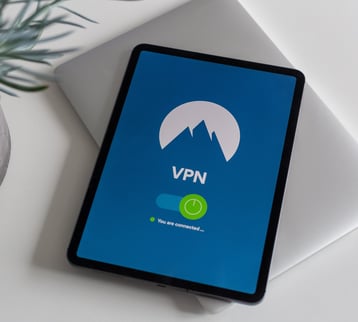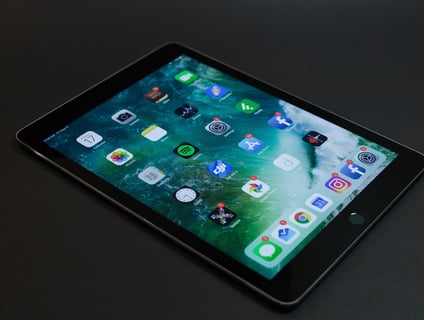Tablets vs. Laptops: A Comprehensive Comparison for College Lifestyles
In the digital age, technology has become an indispensable tool in education, transforming the way students learn, research, and collaborate. Among the myriad of devices available, tablets and laptops stand out as popular choices for college students. Both offer unique advantages and disadvantages that cater to different aspects of the college lifestyle.
8/16/20234 min read


In the digital age, technology has become an indispensable tool in education, transforming the way students learn, research, and collaborate. Among the myriad of devices available, tablets and laptops stand out as popular choices for college students. Both offer unique advantages and disadvantages that cater to different aspects of the college lifestyle. In this article, we will delve into the benefits and drawbacks of using tablets and laptops in a college setting, aiding students in making an informed decision about which device aligns best with their academic needs and personal preferences.
The Best Laptops as listed by Google:
MacBook Air (M1)(2023) The best Windows laptop for college. ...
Acer Chromebook Spin 714 (2022) The best cheap college laptop. ...
The Evolving College Landscape
The traditional image of a college student buried under stacks of textbooks is evolving rapidly, thanks to technological advancements. Tablets and laptops have revolutionized how students access, process, and present information. The college lifestyle now includes online research, virtual classrooms, e-books, collaborative projects, and multimedia presentations. Understanding how tablets and laptops fit into this landscape is crucial for students seeking to optimize their learning experience.
Tablets: The Versatile Companions
Pros:
Portability: Tablets are lightweight and compact, making them ideal companions for students on the move. They can slip into a backpack or even be carried by hand with ease, minimizing the physical strain associated with carrying heavy textbooks.
Note-taking: Tablets offer a range of note-taking options, from typing to using a stylus for handwriting. Many tablets are compatible with digital note-taking apps that enable students to organize their notes efficiently and access them across devices.
Annotating: Tablets excel in allowing students to annotate digital documents, whether it's highlighting passages in e-books or adding notes to lecture slides. This interactive feature enhances engagement and comprehension.
Battery Life: Tablets generally have better battery life than laptops, allowing students to go through a day of classes without worrying about finding an outlet to charge.
Media Consumption: Tablets are superb for multimedia consumption, providing an immersive experience for watching videos, viewing presentations, and interacting with educational apps.
Cons:
Limited Processing Power: Tablets are not as powerful as laptops when it comes to handling resource-intensive tasks like video editing, programming, or running complex software. This limitation might hinder students pursuing majors that require heavy computing.
Multitasking: While newer tablets are becoming better at multitasking, they often fall short compared to laptops. Students who frequently work with multiple applications simultaneously might find tablets limiting.
Keyboard and Typing Experience: Although external keyboards can be attached to tablets, the typing experience might not be as comfortable or efficient as using a laptop keyboard for extended periods.
Laptops: The Workhorses of Productivity
Pros:
Processing Power: Laptops are equipped with powerful processors, ample RAM, and storage, allowing students to handle resource-demanding tasks with ease. This makes them suitable for majors that involve programming, graphic design, and other computationally intensive activities.
Multitasking: Laptops shine in multitasking scenarios. Students can seamlessly switch between multiple applications, making research, writing, and collaborating more efficient.
Software Compatibility: Laptops run a wide range of software, making them versatile tools for various academic disciplines. Students can access programming environments, statistical software, and design tools without limitations.
Comfortable Keyboard: Laptops come with physical keyboards that offer a comfortable typing experience, crucial for extensive writing assignments and projects.
Full OS Experience: Laptops typically run full operating systems like Windows, macOS, or Linux, which provide a comprehensive computing environment with advanced customization and control.
Cons:
Bulk and Weight: Laptops tend to be heavier and bulkier than tablets, which might become cumbersome to carry around campus all day.
Battery Life: While laptops have made strides in battery technology, they still generally have shorter battery life compared to tablets. Students might need to carry chargers or find power outlets during the day.
Note-taking Flexibility: Laptops are not as intuitive for handwritten notes, especially without additional accessories like stylus pens and touchscreens.
Choosing the Right Device for Your College Lifestyle
Selecting between a tablet and a laptop depends on various factors, including your academic needs, personal preferences, and budget.
Major and Course Requirements: Consider the demands of your major. If your studies involve resource-heavy tasks like 3D modeling, video editing, or programming, a laptop's processing power might be essential.
Note-taking Style: Are you more comfortable typing or handwriting your notes? Tablets excel for those who prefer a digital handwriting experience, while laptops are better for those who type extensively.
Portability: Assess how much weight you're willing to carry daily. If portability is a priority, tablets might be the better option due to their lightweight nature.
Budget: Tablets and laptops come in various price ranges. Tablets can be cost-effective options, but powerful laptops might be pricier. Balance your budget with your academic requirements.
Multimedia and Entertainment: If you plan to consume a lot of multimedia content, such as videos and interactive apps, tablets might offer a more immersive experience.
Best Tablets as listed by Google
Hybrid Solutions: Best of Both Worlds
As technology evolves, hybrid devices that merge the benefits of tablets and laptops are emerging. Convertible laptops, also known as 2-in-1 laptops, have touchscreens and flexible hinges that allow them to transform into tablet-like devices. These hybrids provide the versatility of a laptop and the touch functionality of a tablet, catering to both note-taking and resource-intensive tasks.
Conclusion
In the dynamic landscape of higher education, tablets, and laptops each offer unique advantages that cater to different aspects of the college lifestyle. Tablets are lightweight and versatile companions suitable for note-taking, annotating, and multimedia consumption. On the other hand, laptops are workhorses of productivity with powerful processing capabilities, extensive multitasking, and a comfortable keyboard.
Choosing between tablets and laptops ultimately depends on your academic needs, personal preferences, and budget. Carefully consider factors such as your major, note-taking style, portability preferences, and multimedia consumption habits. Additionally, keep an eye on evolving technologies, as hybrid solutions like convertible laptops might provide the best of both worlds.
By making an informed decision, you can ensure that your chosen device becomes an effective tool that enhances your learning experience and productivity throughout your college journey.




